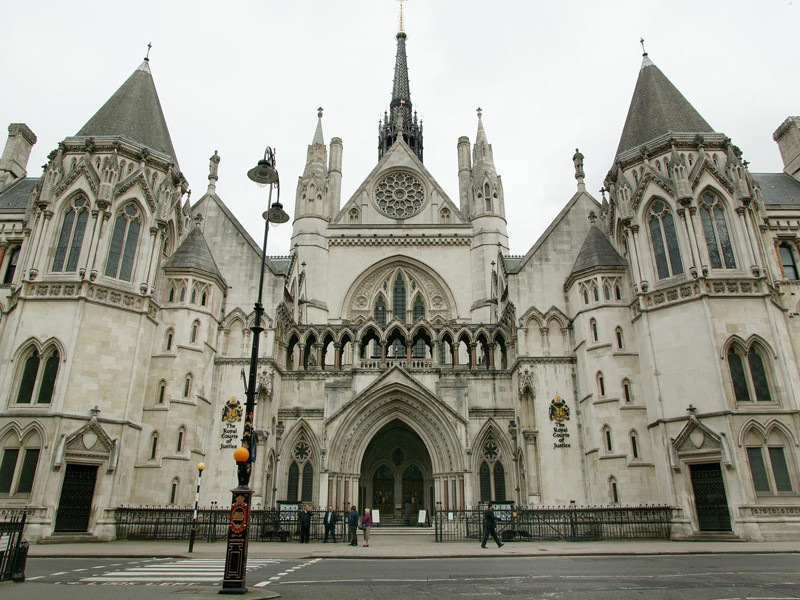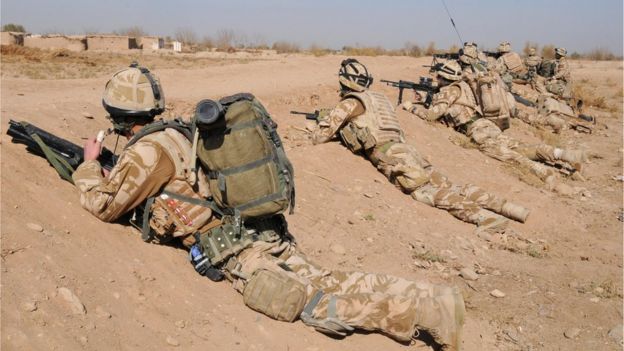 |
| Royal Courts of Justice, London |
The Court Martial Appeal Court (CMAC) has recently
ruled on whether there was a power to dismiss charges in the Court Martial prior
to arraignment. Unlike in the Crown Court, there is no explicit statutory power to dismiss charges in the Service Justice System. Two
non-commissioned officers of the Royal Air Force had applied to dismiss the
charges against them, arguing that the Armed Forces (Court Martial) Rules 2009
(“the Rules”) gave a judge advocate the requisite powers. The Crown contended
that no such power existed, and the matter came before HHJ Jeff Blackett, the Judge
Advocate General, for hearing.
The Defendants argued:
- That s.163 of the Armed Forces Act 2006 (“AFA 2006”)
empowered the Secretary of State for Defence to import the relevant provisions
of the Crime and Disorder Act 1998 by the making of rules.
- By making Rule 26 of the Rules, the Secretary of State
had delegated the power to import the provisions of the Act to a judge
advocate.
- In the alternative, a judge advocate could use their
powers under Rule 25 to stop proceedings which would in the Crown Court be
dismissed under the provisions of the Act.
- There should be a power to dismiss in the Court Martial
because service personnel should be treated no differently to a defendant in
the Crown Court unless there was a good service reason to do so, and there were
no such service reasons.
The Judge Advocate General ruled that neither Rule 25
nor Rule 26 applied and there was no power to import a power to dismiss into
the Court Martial. The Defendants were not permitted to apply to have the
charges against them dismissed.
The Defendants appealed the ruling to CMAC where the
appeal was heard by Simon LJ, William Davis and Jefford JJ. Unlike the Crown
Court, defendants in the Court Martial may appeal preliminary rulings. Prior to
the hearing the Crown conceded that s.163 AFA 2006 empowered the Secretary of
State to import a power to dismiss by the making of rules.
The Defendants renewed their arguments regarding Rule
26 and the need to treat service personnel no differently to a defendant in the
Crown Court unless there was a good service reason to do so. The Defendants
also expanded on a submission made to the Judge Advocate General that prior to
AFA 2006 there had been a power to dismiss charges held by the convening
officer, and absent clear parliamentary language it was wrong to assume the
protection had been extinguished. AFA 2006 was silent on that point.
Simon LJ gave the judgment allowing the appeal:
‘Differences in the processes between the Court
Martial on the one hand and the magistrates’ court and the Crown Court on the
other, notably that the former did not involve the summary sending of a case, were
such that rule 26(a) did not apply, but, in the absence of any Service reason
for depriving a defendant of his right to ask for dismissal of a case, the
saving represented by rule 26(b) applied as the interests of justice required
the judge advocate to apply a comparable process to that in the Crown Court.
That right had existed prior to the coming into force of the Armed Forces Act
2006 and no reason could be discerned for concluding that the right had been
removed by that Act.’
Commentary
It is perhaps surprising that the AFA 2006 was in
force for a decade before this issue was successfully challenged. What is more
surprising is the parliamentary oversight that led to AFA 2006 not explicitly
addressing this issue. Before the AFA 2006 the convening officer (a part of the
chain of command within a defendant’s particular service) had the power to
dismiss charges against a defendant. In exercising this power, the convening
officer was not required to apply the test in Galbraith, rather it was a
command decision.
Undoubtably the role of the convening officer needed
to be abolished as its continued existence fatally compromised prosecutorial
independence and the independence of the Service Justice System as a whole.
However, AFA 2006 transferred many of the functions of the convening officer to
the Director of Service Prosecutions and the Judge Advocate General where they
could be exercised independently. Clearly the power to dismiss could have been
transferred to the Judge Advocate General. Given the silence of the AFA 2006
the only conclusion to be drawn is that this was an error of drafting within
the act, which had far reaching consequences.
The power to dismiss is a fundamental protection for a
defendant. It prevents weak cases from entering the system and putting the
defendant in peril of wrongful conviction. The power to dismiss also protects
the Service Justice System and HM Forces as a whole. The Service Justice System
is protected by having weak cases weeded out early before they occupy
considerable periods of court time and associated resources. This prevents
delay in other cases, delay which can reduce the quality of evidence. Delay in
resolving cases has a wider impact on the Armed Forces as delay undermines the
morale of individuals and units, distracts service personnel from their duties
and impact on operation effectiveness. By allowing Defendants to apply to
dismiss charges CMAC has ensured that defendants who have chosen to serve Queen
and Country are not disadvantaged. Additionally, the efficiency of the Service
Justice System has improved with knock on benefits to all of HM Forces.































